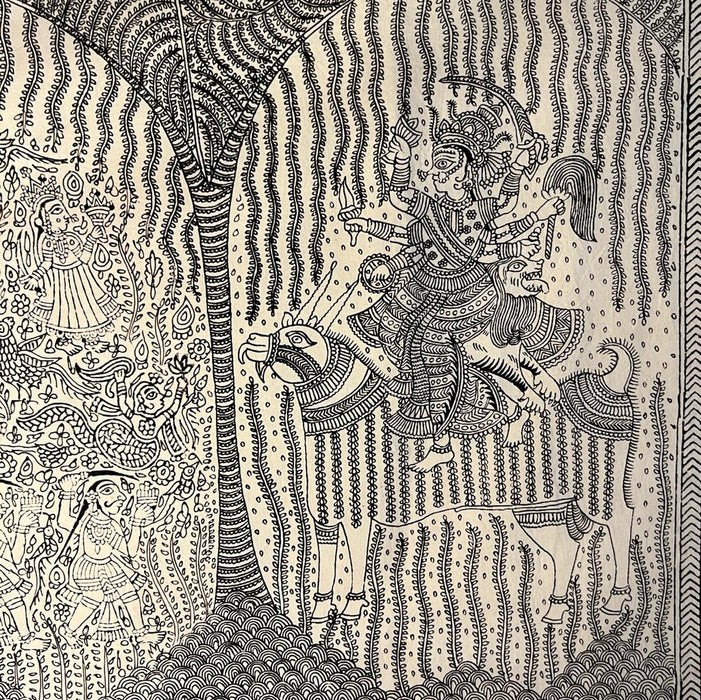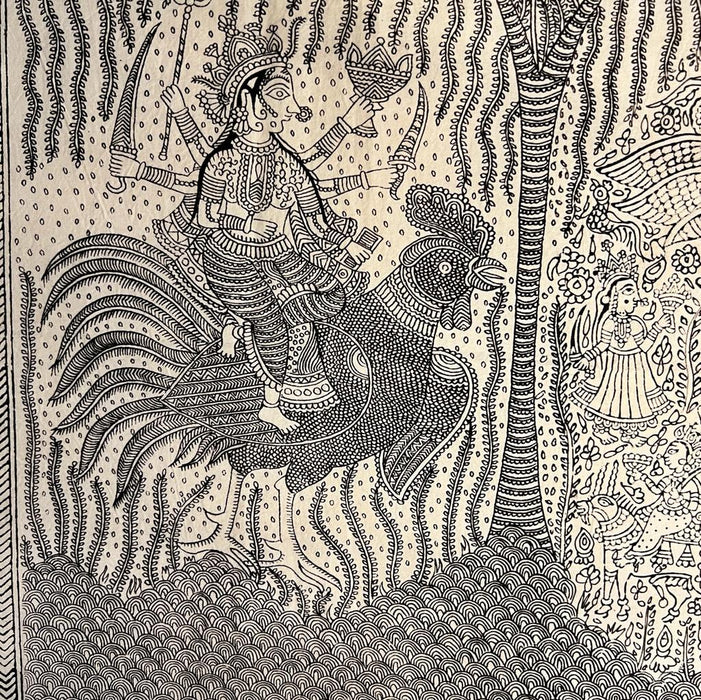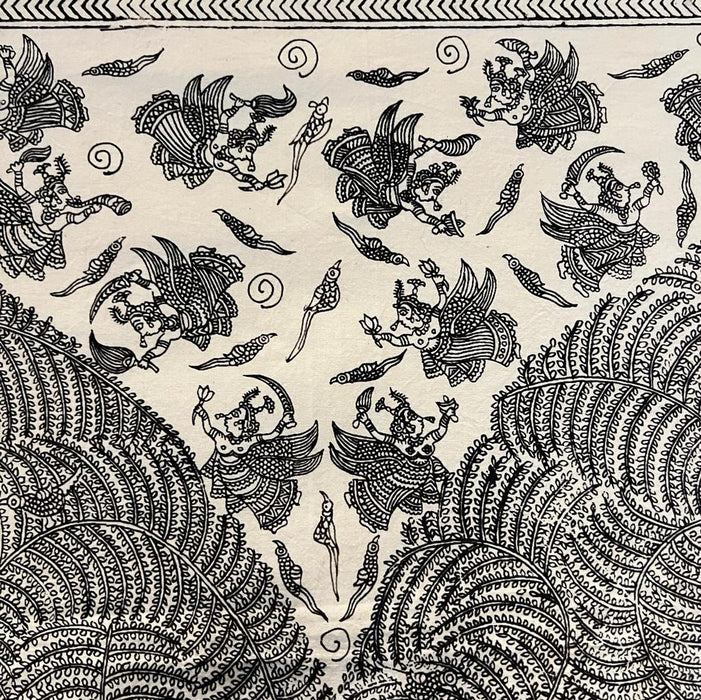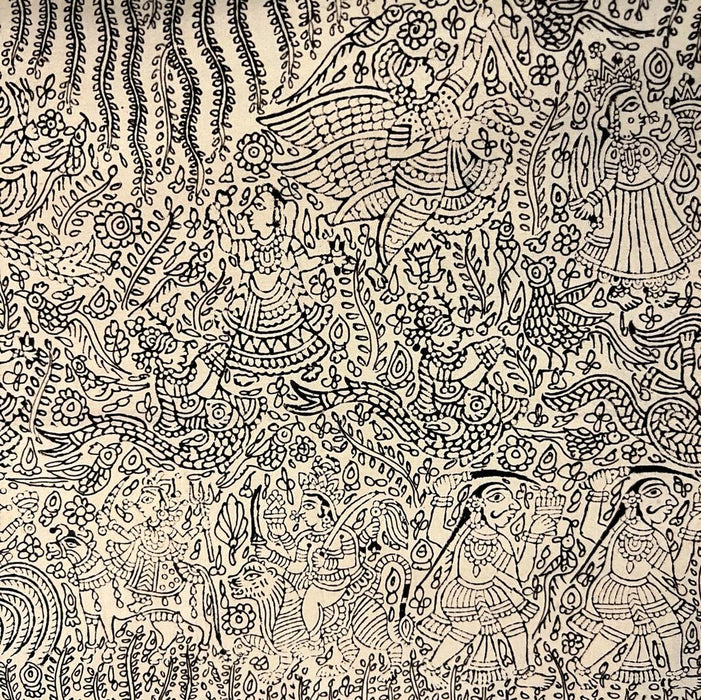Each Piece is a reflection of your Thoughts and Personality | Trusted by 5000+ Customers
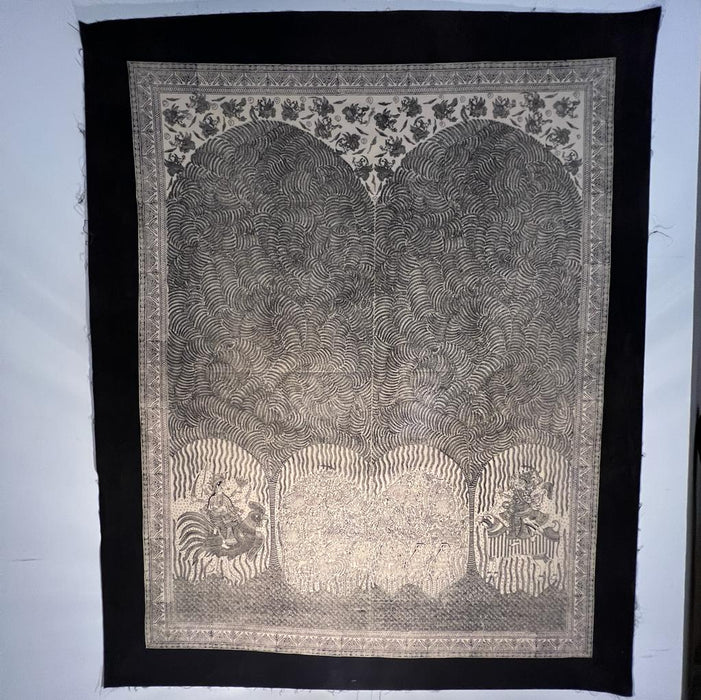
Handpainted, Intricate Mata Ni Pachedi in Black, White and Red : Momoi Mata
See It Live Before You Buy
Want to make sure it’s just right? We offer WhatsApp video calls so you can take a closer look before placing your order.
Available Mon to Sat, 10:30 AM – 6 PM
Mata ni Pachedi, an art form from Gujarat celebrate the Mother Goddess. Literally translated it means “behind the mother goddess”, and is a fabric that resembles a temple of the goddess.
When people of the nomadic Vaghari community of Gujarat were barred from entering temples, they made their own shrines with depictions of the Mother Goddess of different forms on to the cloth. The unique feature of this temple-hanging is the product layout of four to five pieces of Mata-ni-Pachedi erected to form a shrine for the Mother Goddess. Traditional Mata ni Pachedi is a rectangular piece of fabric used as a canopy in the place of ceiling in a nomadic shrine which houses the main mother goddess image at its center.
Traditionally the Mata-Ni-Pachedi was painted on walls of temples (Mudh of Mata’s). The pachedi have a distinct visual identity that is developed through the use of strong bold forms and re-enforced by the application of stark colours-blood red, black and white.
The main characteristic feature of the Pachedi was that in center part there was a figure of Mother goddess and in right and left part other motifs like mythological characters, human figures, musicians, sacrificial animals and flowers were placed. It was always highlighted with bold ornate borders. Traditionally Pachedi always framed with the ornate border in black and red with white as surface colour. Each colour has its own significance e.g. black colour indicates the evil eye, red indicates the colour of earth mother as well as blood which is sacred feature during worshipping mother goddess and white indicate purity. Mata-Ni-Pachedi was made only with two naturally obtained colours, black (jaggery, iron rust and water) and red (alum, alizarin and dhawadi flowers) on white background.
To quicken the process and meet demands of villagers, who would commission paintings to offer to the mother goddess on fulfillment of wishes, the painters started using mud blocks for printing. These blocks were large and coarse, and after using a few times, would be thrown in the river where they returned to the soil. Over the course of time, wooden blocks replaced mud blocks, facilitating the use of finer motifs. Yet, the craftsmen still often make the entire painting with the bamboo “kalam”, using blocks only for printing the borders.
It takes days of patience and dedication, to prepare one piece of this beautiful folk art. For instance, painting a cloth of 5” x 9” can take two months. The artists get a rush of orders a couple of months before the Navaratri festival.
While craftsmen are refining this folk craft to suit the changing times, yet the sanctity of this religious artifact remains untouched. Creating Pachedis as well as new illustrations that are relevant in today’s context, but in the same folk style, these craftsmen have remained true to the cause of spreading the glory of the Mother Goddess and her wonderful art.
- Hand painted depiction of Goddess Momoi Mata
- Typical Mata Ni Pachedi
- Rendered in Black, white and red
- Very unusual and striking
- Extremely intricate and detailed design , very finely rendered
Size: 36" x 48" Unframed
Shipping all over India

